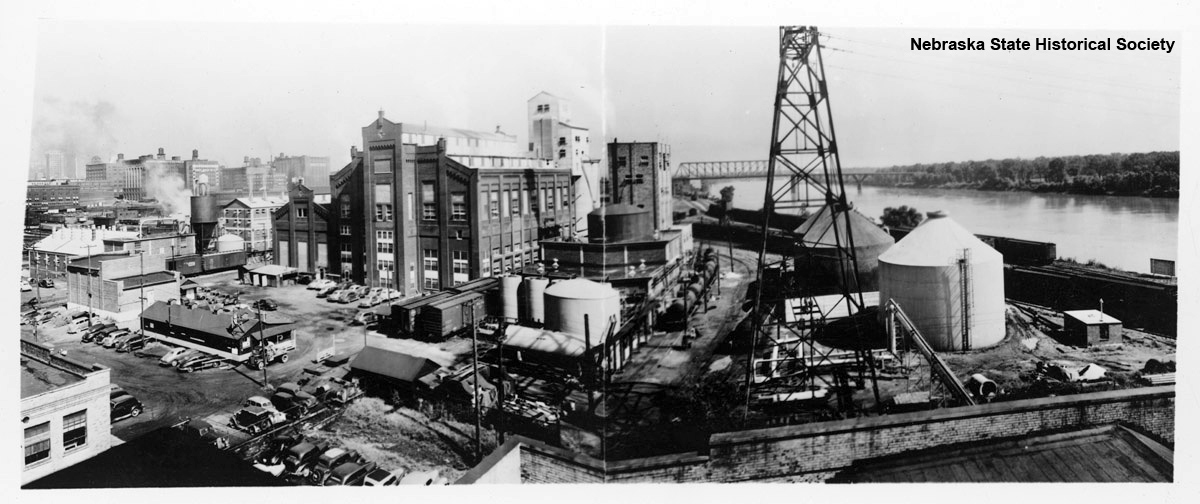
Farm Crop Processing Corporation’s alcohol plant, Fourth & Jones streets, Omaha. NSHS RG1963-14
In a blog post a few years ago we showcased the gas station operated by Earl Coryell that pioneered the production and sale of an ethyl alcohol blended motor fuel. However, that was not the only pioneering effort for the use of ethanol that came from Nebraska.
In 1942 a group of prominent Nebraskans including, among others, former state engineer George Johnson, former governor Arthur Weaver, former attorney general C. A. Sorensen, and food magnate Carl Swanson, formed the Farm Crop Processing Corporation in Omaha to produce ethyl alcohol that would be made into synthetic rubber to replace imported natural rubber supplies cut off during World War II. The plant did not begin production until 1944, tangled by government red tape, perhaps at the behest of the oil industry, which was also producing synthetic rubber.
Nevertheless, the tires of many vehicles that rolled ashore on Normandy Beach in June 1944 were made from synthetic rubber that “grew” in Nebraska cornfields. At war’s end, despite the efforts of Nebraska Senators Hugh Butler and George Norris, federal funds waned. Competition from petroleum interests increased. The company struggled on for a few years but finally closed in 1949, ending an early chapter in the long history of ethanol production in Nebraska.



